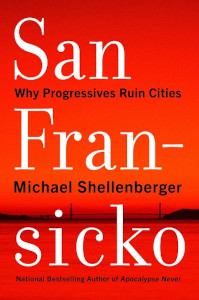Posted by Elena del Valle on January 24, 2022

Filmmaker Claudia Sparrow
Photo, video: courtesy of Claudia Sparrow
A podcast interview with documentary filmmaker Claudia Sparrow is available in the Podcast Section of Hispanic Marketing and Public Relations, HispanicMPR.com. During the podcast, she discusses Maxima with Elena del Valle, host of the HispanicMPR.com podcast. Scroll down to watch a Maxima trailer in English and Spanish with subtitles.
Claudia was born and raised in Lima, Peru. Her American Film Institute film El Americano won a 2009 Emmy Award in the drama category and she was a recipient of the 2009 Franklin J. Schaffner Fellow Award from the American Film Institute for directing that film.
Claudia’s first feature film I Remember You, starring Stefanie Butler and Joe Egender, premiered at the 2015 Downtown Film Festival Los Angeles, where it won the Best Feature Length Dramatic Film Award. I Remember You had a theatrical release in 2016 and remains available on major streaming platforms.
To listen to the interview, scroll down and click on the play button below. You can also listen by looking for “Podcast” then select “HMPR Claudia Sparrow” or download the MP3 file to your device or player. You can also find it on the RSS feed. To download it, click on the arrow of the recording you wish to copy and save it to disk. The podcast will remain listed in the January 2022 section of the podcast archive.
Watch the Maxima trailer below:
Posted by Elena del Valle on January 12, 2022

San Fransicko
Photo: Harper
California has serious problems that have resulted in many residents departing the state in search of a better life. So much so that there is a cottage industry of businesses assisting residents to relocate. San Francisco and Los Angeles in particular, have an epidemic of homelessness and untreated addiction as well as a mental health crisis, according to Michael Shellenberger. In San Fransicko Why Progressives Ruin Cities (Harper, $28.99), a 395-page hardcover book published in 2021, he discusses his thoughts on the situation in the city and its environs.
In the book he outlines the notable rise of homelessness, runaway addiction, open use of illegal drugs in public places, rampant crime and mental illness; all of which he thinks have made the area and its streets unsafe and driven tens of thousands of people away from the state and especially from the general San Francisco area. He quotes policymakers, critics, advocates of change, former San Francisco homeless and former addicts.
Hoards of homeless people, often attracted to the city’s progressive policies and economic incentives for the homeless, have made their way to San Francisco and the surrounding areas resulting in frequently unpunished crime by over lenient prosecutors, public use of illicit drugs in parks and streets as well as widespread public urination and defecation in some neighborhoods, he says in the book. He illustrates the situation by explaining that between 2015 and 2018 the city replaced 300 lampposts corroded by urine (after one of the corroded lampposts crushed a car).
San Francisco doles out significant amounts of cash to the poor when compared with other cities; $709 per capita compared to $195, $120 and $.34 in New York City, Chicago and Phoenix, he says. The city’s permissive drug use programs and policies and its refusal to prosecute crimes has resulted in steep increases in the use of heroin, meth and fentanyl and brazen and booming crime. Those issues have made the city expensive, unsafe, and unattractive to many businesses and residents. Between 2008 and 2019, he says, 18,000 businesses such as Hewlett-Packard, Toyota and Charles Scwab, fled the state.
Addressing the underlying issues that have made drug use, homelessness and crime thrive along with fostering policies that improve the availability of housing may pave the way to a possible future solution, he says. Part of the solution outlined in the book would require Californians to agree to more suburbs and development in ranches and farmlands, while leaving the city itself with limited further housing.
He believes the crisis of disorder thriving in San Francisco, Los Angeles and Seattle is spreading east. He describes a neoliberal model of government contracting to nonprofit service providers that are unaccountable as well as unable to address the crisis is underlying “the breakdown of civilization on America’s West Coast.”
Shellenberger is founder and president of Environmental Progress. He authored Apocalypse Never.
Comments:
Filed Under: Books
Posted by Elena del Valle on January 4, 2022

Barry Alexander, CEO, Aquiline Drones
Photo: Aquiline Drones
A podcast interview with Barry Alexander, CEO, Aquiline Drones, is available in the Podcast Section of Hispanic Marketing and Public Relations, HispanicMPR.com. During the podcast, he discusses drones with Elena del Valle, host of the HispanicMPR.com podcast.
Barry brings over 25 years of experience as an aviator and licensed aircraft technician for airplanes and helicopters. Barry has spent most of his career working as an airline captain for various airlines, with over 22,000 hours of logged flight time. On his last assignment he flew Boeing 747 aircraft globally, mainly in support of United States military operations. He has worked as a flight instructor, chief pilot, director of operations and has led other non-aviation ventures in health information systems, electronic payment systems and digital media.
To listen to the interview, scroll down and click on the play button below. You can listen by looking for “Podcast” then select “HMPR Barry Alexander” and download the MP3 file to your audio player. You can also find it on the RSS feed. To download it, click on the arrow of the recording you wish to copy and save it to disk. The podcast will remain listed in the January 2022 section of the podcast archive.












